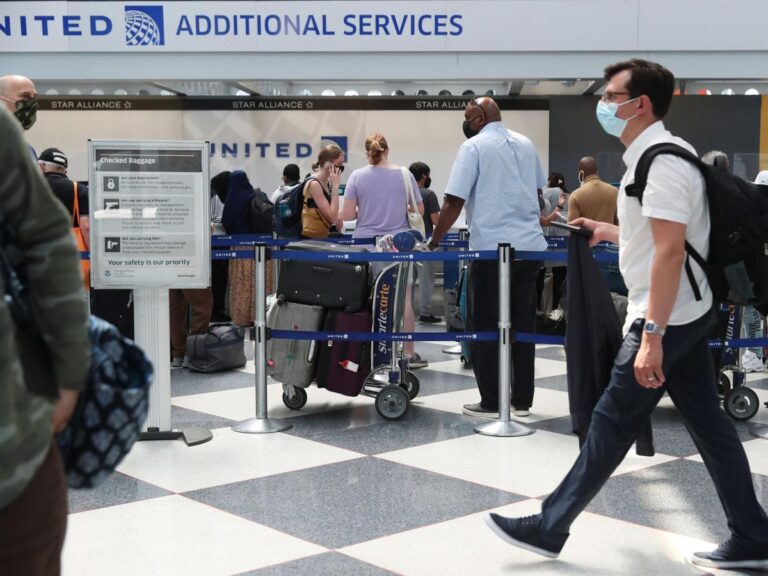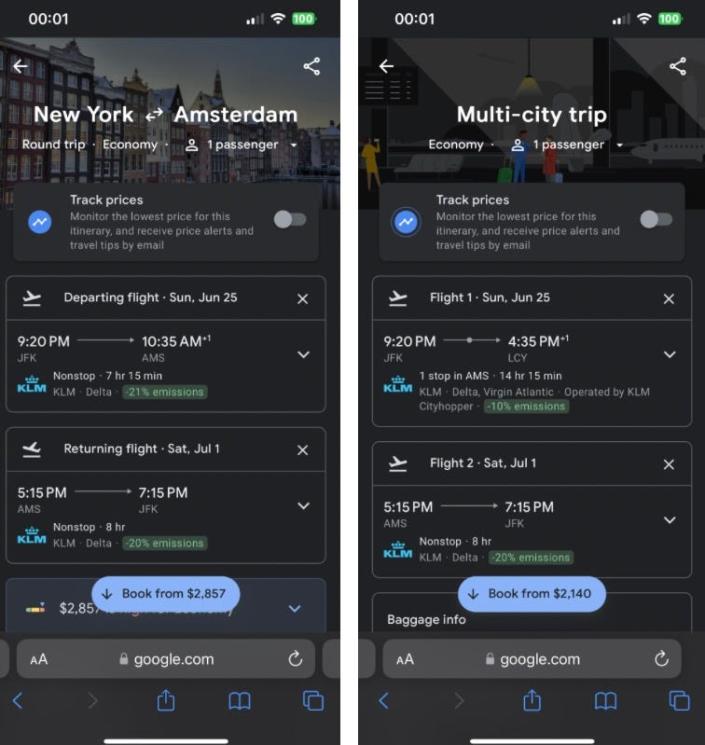
[ad_1]

-
Sky-high airfare has many travelers turning to unique strategies to find cheaper tickets, like “skiplagging.”
-
This means booking a flight with a layover city intended as the destination and then skipping the second leg.
-
The practice is sometimes cheaper than booking a regular nonstop flight, but airlines hate it.
The post-pandemic travel bug has people flocking to destinations far and wide, but getting there isn’t cheap — forcing some flyers to turn to a cost-saving strategy known as “skiplagging.”
Skiplagging — also referred to as “hidden city” or “throwaway” ticketing — is the practice of booking a flight with a layover in the intended destination city, and then bailing on the second leg of the journey.
People can save hundreds on tickets, which is particularly enticing as expensive fares continue to plague the industry thanks to a combination of inflation, rising fuel costs, and strong post-pandemic demand
For example, a roundtrip flight from New York to Amsterdam in late-June is about $2,850 on Dutch flag carrier KLM.
However, manipulating the booking by setting the outbound destination as London City instead of Amsterdam brings the roundtrip price down to about $2,150.

The return flight is still nonstop out of Amsterdam, so hypothetically one could simply not take the second leg to London on the outbound and stay in the Netherlands instead.
In some cases, people will book the return leg separately if it’s cheaper — or travelers will eventually make their way to the original itinerary’s destination and try to catch the scheduled return from there.
Flight booking website Skiplagged.com has even built a business around the concept by providing a platform that can alert travelers to these deals based on their preferred airport and destination.
The company only allows one-way tickets though — which can many times be more expensive than booking a roundtrip skiplagged itinerary directly through the airlines.
While this strategy may seem like a saving grace post-pandemic, it is not as innocent as it may seem. Airlines actually hate it.
In a January 2021 memo to employees, American Airlines started cracking down on the practice by introducing new tools to flag potential skiplag booking to agents.
“We’ve always prohibited these types of booking practices,” the carrier told TravelPulse at the time.
In 2014, United Airlines and travel website Orbitz even teamed up to sue Skiplagged founder Aktarer Zaman for “unfair competition” and “deceptive behavior,” saying his website cost the duo $75,000 in lost revenue.
The case was filed in Illinois but was thrown out because the court did not have jurisdiction as Zaman worked and resided in New York City — not Chicago. Skiplagged.com maintains the practice is “perfectly legal,” according to its website.
“We remain troubled that Mr. Zaman continues to openly encourage customers to violate our contract of carriage by purchasing hidden-city tickets,” United told CNN Money in 2015.
Because of the clear disapproval from airlines, the practice is a risk for passengers — especially as carriers have since added written protections against skiplagging in their contracts of carriage.
According to NerdWallet, airlines could punish travelers by canceling the return leg or taking away loyalty miles and elite status.
Skiplagged.com also notes that this strategy won’t work with checked bags as the airline tags them to the final destination — and it’s unlikely a passenger can convince an agent to just unload the bag in the layover city.
“Booking unusual itineraries could raise red flags, and someone could flag and monitor you while you fly,” Atmosphere Research Group founder and travel analyst Henry Harteveldt told the BBC in 2019. “At some point, you may get a letter or corporate security meeting you at the gate. The airlines’ intention is to intimidate and recover what they perceive to be lost revenue.”
However, he explained this is a self-imposed problem created by airlines.
“I fully understand, as an airline analyst and business person, why airlines extract as much as they can where they have leverage. That is what business is all about,” Harteveldt told the BCC. “But when an airline puts out stupid airline pricing and the fare into a hub [airport] is nonsensically high, it is almost like airlines invite hidden-city booking.”
Read the original article on Business Insider
[ad_2]